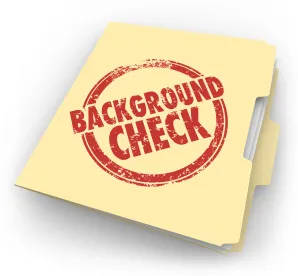2020 saw significant changes in Illinois employment law, and the trend continues in 2021. Among the 2020 changes were Illinois Human Rights Act amendments requiring Illinois employers to conduct annual sexual harassment awareness training of employees and to provide annual reporting of discrimination charges filed against them. Further, the 2020 Illinois Workplace Transparency Act mandates that certain terms be included in employment and separation agreements with employees, and prohibits the inclusion of other terms. Most recently, on March 23, 2021, Governor J. B. Pritzker signed into law S.B. 1480, which impacts Illinois employers perhaps even more so than the employment laws that went into effect in 2020. This GT Alert summarizes S.B. 1480 (codified in P.A. 101-0656), which:
-
amends the Illinois Human Right Act to include a definition of “conviction record” and imposes more stringent requirements than existing federal or Illinois law on the use of an employee or applicant’s conviction record in making employment decisions;
-
amends the Illinois Business Corporation Act to require Illinois domestic corporations and foreign corporations authorized to do business in Illinois that are required to file Annual Reports with Illinois Secretary of State and required to file an Employer Information Report EEO-1 with the EEOC will be required to file substantially similar information with the Illinois Secretary of State; and
-
amends the Illinois Equal Pay Act by adding new provisions that will require private sector employers with more than 100 employees in Illinois to file with the Illinois Department of Labor an equal pay “registration certificate” every two years that includes the gender, race, and ethnicity of each employee employed in Illinois and the total wages paid to each such employee in the prior calendar year, as well as a signed statement by an agent authorized by the employer for each Illinois county in which the employer has a facility or employees that the business is in compliance with certain specific federal and state employment laws, and other specific representations regarding the average compensation of female and minority employees as compared with male and non-minority employees.
Limits on the Use of Conviction Records
The amendments to the Illinois Human Rights Act define “conviction record” as any information indicating that a person has been convicted of a felony, misdemeanor, or other criminal offense, placed on probation, fined, imprisoned, or paroled pursuant to any law enforcement or military authority.
The amendments on criminal convictions prohibit employers from considering applicant and employee criminal conviction records when making employment decisions, with two exceptions: (1) where a “substantial relationship” exists between the conviction and the employment action at issue; or (2) where granting or continuing an individual’s employment would create an unreasonable risk to safety or property of specific individuals or the public. A “substantial relationship” exists between the conviction and the employment action where the position presents the individual with an opportunity and circumstances to commit similar offenses to those reflected in his or her conviction. Further, employers are required to consider the following mitigating factors in determining whether a conviction is disqualifying: (i) the length of time since the conviction; (ii) the number of convictions represented in the conviction record; (iii) the severity of the conviction and its relationship to the safety of others; (iv) the circumstances surrounding the conviction; (v) the age of the employee at the time of the conviction; and (vi) any evidence of rehabilitation. These requirements are similar to but more extensive than those required when considering convictions under Title VII or the Illinois Human Rights Act before these amendments.
Before an employer takes any adverse employment action based on a criminal conviction, the employer must engage in an interactive process with the applicant or employee. This process includes notifying and/or providing the employee or applicant of/with: (1) the specific conviction the employer believes disqualifying and the employer’s explanation of the reason for a preliminary disqualification; (2) a copy of the conviction history report, if any; and (3) an explanation of the individual’s right to respond, including submissions of evidence challenging the accuracy of the conviction record or any evidence of mitigation. Employers must allow the applicant or employee five business days to address the employer’s notice before a final decision is made, and notify the applicant or employee of the disqualifying conviction that forms the basis of the final decision, the reason for the decision, any existing internal procedures to challenge the final decision, and the right to file a charge with the Illinois Department of Human Rights.
These amendments do not eliminate but are in addition to compliance with the “ban-the-box” provisions of Illinois law that mandate when and how during the hiring process employers may obtain criminal conviction information about an applicant. These amendments went into effect the day the Governor signed S.B. 1480, March 23, 2021. The potential liability for violation of these amendments is the same as for other violations of the Human Rights Act and include reinstatement or hiring, back pay, compensatory and punitive damages, and the employee or applicant’s legal fees, costs, and litigation expenses. To help ensure compliance with these amendments, Illinois employers should review their current procedures for conducting and utilizing criminal background checks, including those used by third parties with whom they engage to conduct such checks.
Filing EEO-1 Data with the Illinois Secretary of State
This amendment to the Illinois Business Corporation Act essentially requires a replication of the data that an employer subject to the EEO-1 filing requirements is required to provide under Section D of the EEO-1 report. The Secretary of State is to provide a format for the filing. This report must be filed with the corporation’s annual report filed with the Secretary of State, beginning with the first such report filed on or after Jan. 1, 2023. Unlike the EEO-1 reports, which are not published, these reports will be published. Failure to file these reports when filing an annual report when due could lead to dissolution of the corporation and fines.
Illinois Equal Pay Act - Equal Pay Registration Certificates
These amendments to the Illinois Equal Pay Act require private sector employers who employ more than 100 employees in Illinois to obtain an equal pay registration certificate from the Illinois Department of Labor by March 23, 2024, and to obtain recertification every two years thereafter. Any such employer that becomes authorized to transact business in Illinois after March 23, 2021, must obtain such certification within three years after commencing operations in Illinois and must obtain recertification every two years thereafter.
To obtain these certifications, a covered business will have to pay a $150 filing fee and submit an equal pay compliance statement to the Director of the Department of Labor that includes (1) a copy of its most recent EEO-1 report filed with the EEOC, if required to file such reports, for each Illinois county in which the business has a facility or employees; (2) a list, from records maintained and available, of all Illinois employees during the past calendar year by gender, race, and ethnicity categories as reported in the most recently filed EEO-1 report; and (3) the total “wages,” as defined in the Illinois Wage Payment and Collection Act paid to each Illinois employee during the last calendar year rounded to the nearest hundred dollars.
As part of the equal pay compliance statement, a covered employer must also submit a statement signed by a corporate officer, legal counsel, or other authorized agent of the business stating (1) the business is in compliance with Title VII of the Civil Rights Act of 1964, the Equal Pay Act of 1963, the Illinois Human Rights Act, the Equal Wage Act, and the Equal Pay Act of 2003; (2) the average compensation for its female and minority employees is not consistently below the average compensation, as determined by rule by the U.S. Department of Labor, for its male and non-minority employees within each of the major job categories in the EEO-1 report, taking into account the recognized legitimate factors that justify pay differentials; (3) the employer does not restrict employees of one sex to certain job classifications and makes retention and promotion decisions without regard to sex; (4) wage and benefit disparities are corrected when identified to ensure compliance with applicable federal and state laws; (5) how often wages and benefits are evaluated to ensure compliance with the laws cited in (1) and (2) above in this paragraph; and (6) the basis on which the business sets compensation and benefits as set forth in the amendment.
A covered business that has multiple facilities or locations in Illinois will have to submit one single application for all of those facilities. The Director of the Department of Labor must approve an application and issue an equal pay certification within 45 days of the Department’s receipt of the application. Issuance of an equal pay certification does not establish compliance with the federal Equal Pay Act. The Department is authorized by the amendments to conduct compliance audits and investigations. The failure of a covered business to obtain an equal pay registration certificate or the suspension or revocation of a certificate by the Department after an investigation is subject to a penalty of 1% of the business’s gross profits. The amendments provide for an administrative process to contest the Department’s decisions; however, this penalty and the costs of litigation would not be insignificant. Therefore, even though these amendments do not go into effect until March 23, 2024, covered businesses should not wait until the last minute to evaluate whether they are in compliance.




 />i
/>i
